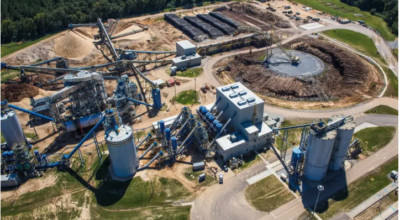Pumping the oil brakes? Low oil prices could mean slower development for area
Published 12:10 am Sunday, November 16, 2014

Billy Tanner of C&C Oilfield Supply walks past piping used in oilfields Thursday. While low oil prices are impacting larger oil production companies, small businesses in the area have yet to feel the effects. (Sam Gause/The Natchez Democrat)
NATCHEZ — Low oil prices may be a boon for consumers seeking to save a little at the pump, but the decline in prices may mean a slower pace of development for the oil industry in Southwest Mississippi.
Domestic crude oil was trading at approximately $74 a barrel Friday, down from $107.20 a barrel in June.
Those lower prices can mean more costly operations like the Tuscaloosa Marine Shale play in portions of Amite, Wilkinson and Adams counties may no longer offer the same potential for profitability.
The TMS is a non-traditional oil play that requires companies to use a combination of multiple drills, hydraulic fracturing and technology to compensate for migrating clays to extract oil and gas from the shale.
“I think with any significant dip in oil prices like you see now, you will see TMS production slowing,” Natchez Inc. Executive Director Chandler Russ said. “As the TMS continues to develop, it needs a higher margin oil number in there. I don’t think this is a bust, but unlike (other) shales that have all the players and resources in place, this one is in the process of setting up.”
The high cost of the play and the low selling point of crude were key reasons Halcon Chief Executive Officer Floyd Wilson listed for the company’s scaling back of TMS operations during an earnings conference call last week.
Halcon has a one-year option a 50-acre property in the Natchez-Adams County Port to serve as a TMS staging area.
“I’m going to do my darndest to make sure people understand we’re highly confident and we like the play,” Wilson said during the call. “There is a lot of oil there, but it’s an early-stage development project…However, it is currently a relatively high-cost play and with currently low crude prices, we will not be devoting a significant portion of our resources to the TMS in the near term.”
Wilson said the TMS is still a worthwhile play, but current oil prices have the company taking a conservative route.
“Costs are coming down, fewer what I call train wrecks on wells across the industry will bring the cost down and then just experience will bring costs down,” he said. “So if we hit our model up … over in the TMS and get costs down, those wells will compete with (nearly) everything else we have.”
While big operations in the TMS may be eyeing a scale back, the dip in prices isn’t having as much of an effect on the area’s traditional oil productions.
“People tend to pull back a little bit and not be quite as active, but we are fairly used to price fluctuations in this part of the country and in the shallow plays around this area — like the Wilcox — that we have been drilling for so many years,” Natchez geologist Frank Davis said.
“I think possibly in the coming months ahead, if the price stays where it is, we might see some of the drillers and service companies start to come down in their costs for drilling wells. They all upped the costs when the prices went up over $100 a barrel, so they might have to bring those back down.”
Billy Tanner, the store manager at C&C Oilfield Supply, said he doesn’t anticipate small oilfield service companies will feel the reduction for some time, if at all, before prices start to rise and production picks back up.
“It takes a while for it to start affecting us,” Tanner said. “It has to trickle a lot further downhill to get to us.”
While development of the TMS may slow down, Russ said he anticipates companies like Goodrich and Encana, which are already heavily invested in the shale, will continue to see good results on the wells they have developed.
“I just don’t think with the dip in oil prices you will see an acceleration of that,” Russ said.
“They’re going to continue to work there, but there’s not going to be a mad dash for more. If you start to see oil prices start to creep back up, you know the oil is there, that you can go in and get it out and it’s a matter of having the right pressure and price points to do it, so higher oil prices for us early in the play is better.”





